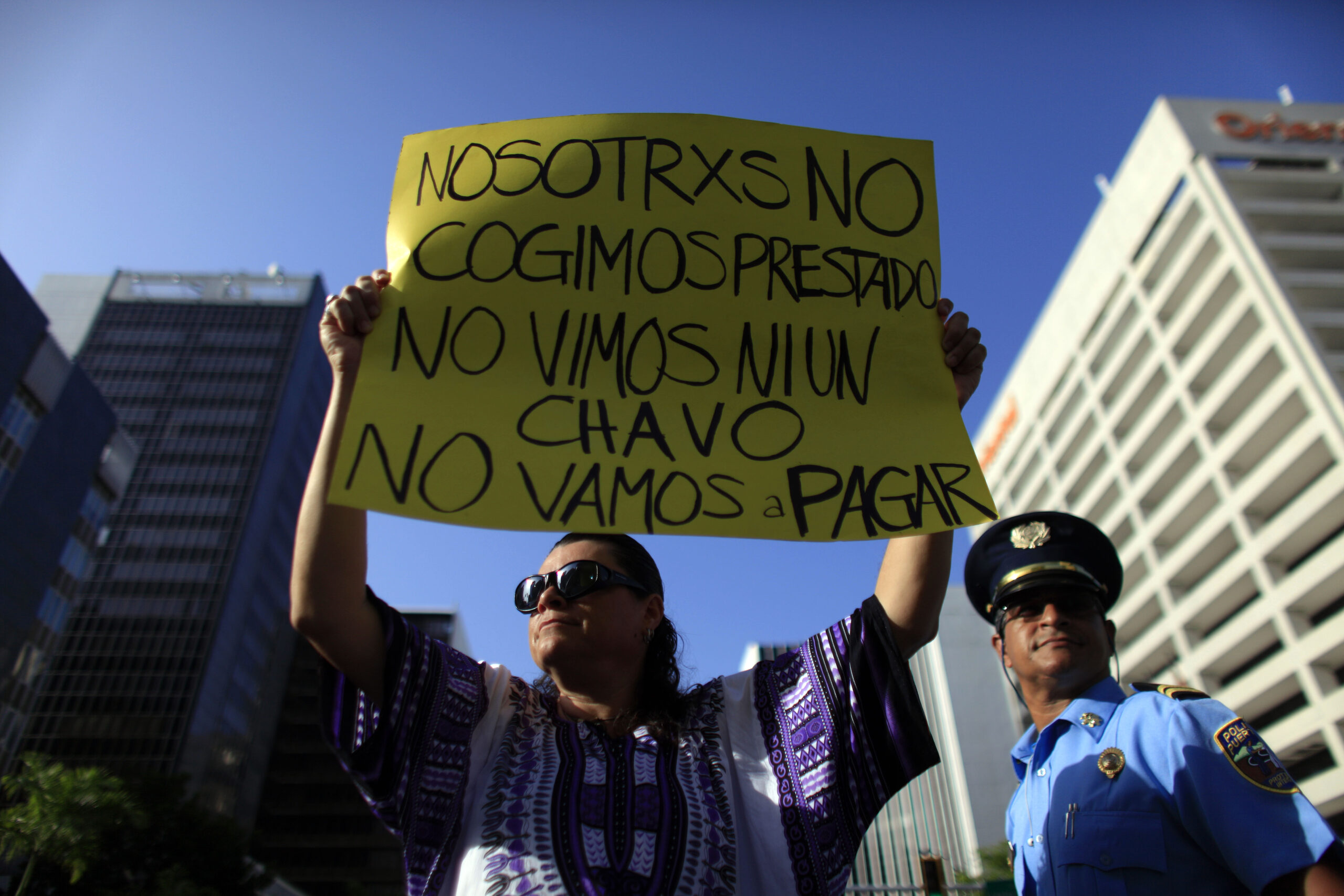New York – Laura Taylor Swain, the federal judge hearing the case over Puerto Rico’s debt, agreed to examine the request of unsecured creditors and bondholders of the Electric Power Authority (PREPA) such as Assured Guaranty Corp. to reopen the file , since they consider that the entity can pay them more as part of the Debt Adjustment Plan (PAD).
The group had asked the judge of the southern district of New York to reopen the case file for the bankruptcy of PREPA under Title III, because they understand that the corporation can pay them much more than the amount established in the PAD presented by the Board of Fiscal Control (FOMBPR), a federal agency that has managed Puerto Rico’s finances since 2016 as a result of the PROMESA Law.
“The revised demand projections provide important financial information that demonstrates that PREPA can pay its creditors more than what has been proposed under the plan,” reads part of the motion presented by Assured Guaranty that El Nuevo Día reviewed.
In the fourth version of the PAD, the Board proposed that creditors and bondholders be paid $2.6 billion compared to the previous amount of $10 billion.
To support their request, the creditors refer to new data from LUMA Energy, a private company in charge of energy transmission and distribution, which supposedly demonstrates that homes and businesses in Puerto Rico will consume more energy than estimated in the middle of last year. Due to projections of supposed decrease in energy consumption, the initial amount of the obligation was reduced by 75%.
According to the group, LUMA’s figures represent $1.5 billion more than expected in collections.
“The PREPA bondholders asked the fiscal board to adjust the plan to take into account this new critical information, but the Board not only refused to do so, but did not even consent to the request to supplement the record in any way.” that this update be reflected in the projections,” declared Howard R. Hawkins, Jr., representing Assured Guaranty, as quoted by El Vocero.
Preliminarily, Taylor Swain agreed with the position of bondholders and creditors in the sense that it is necessary to evaluate whether the new estimate presented by LUMA Energy, on April 1, based on the Integrated Resource Plan (IRP) should be taken into account. consideration to establish whether the draft is “fair and equitable.”
The judge highlighted that the concept of “fair and equitable” is not based on a rule of absolute priority aimed at repayment to applicants.
Taylor Swain clarified that he will consider issues such as PREPA’s need to have sufficient funds for the continuation and improvement of operations, and its practical limitations when it comes to increasing rates.
The judge gave the Board and other parties involved until May 10 to respond to the proposal.
The folder will be opened to add the LUMA Energy report and the opinion of its experts.
The most recent plan presented by the Board includes a three-part legacy position. One is the fixed portion which, in the case of households, will be $1 per month. Two additional charges will be added to this rate for consumption; one up to the first 425 kilowatt hours (kwh), and another, for consumption in excess of such threshold.
The proposed rate increases for Puerto Ricans have generated multiple protests on the island, including a camp called by the Association of Retirees of the Electric Power Authority (AJAEE), outside the Federal Court for the District of Puerto Rico, for two weeks during the course of the hearings to evaluate the PAD last March.
For opponents, the increases in the bill that would extend for more than 30 years will lead to a greater economic crisis due to the closure of businesses and the loss of jobs. They also anticipate greater migration of Puerto Ricans to the United States.
The AJAEE in particular is fighting to ensure that its pensions are not cut as part of the plan’s provisions.
Utier Agreement, another pending matter
Regarding the controversy over the collective agreement of the employees of the Union of Workers of the Electrical and Irrigation Industry (Utier), the judge this week ordered the Board to demonstrate through a Declaration of Material Facts without Controversy (SUMF) the relevance of canceling that contract as part of the PAD.
In relation to this lawsuit, the federal agency must meet with the union’s lawyers and respond before May 13.
“This court continues to urge the parties to work seriously and in good faith to negotiate a consensual resolution to their disputes together with the Mediation Team,” said Taylor Swain.
In June the judge is supposed to decide whether she will approve the Adjustment Plan proposed by the Board or not. However, in light of these controversies, it is unclear when the togada will finally make a determination.
Experts on the issue of the bankruptcy of the Center for the New Economy (Center for New Democracy) have anticipated that the lack of consensus between the parties on the scope of the plan could lead to an appeal of it before the First Circuit in Boston.
Keep reading:
Puerto Rico: Opponents of PREPA’s Debt Adjustment Plan assure that it will lead Puerto Ricans to misery
Puerto Rico: Economist Caraballo Cueto predicts that PREPA Debt Adjustment Plan with increases in electricity rates for 30 years will be confirmed
